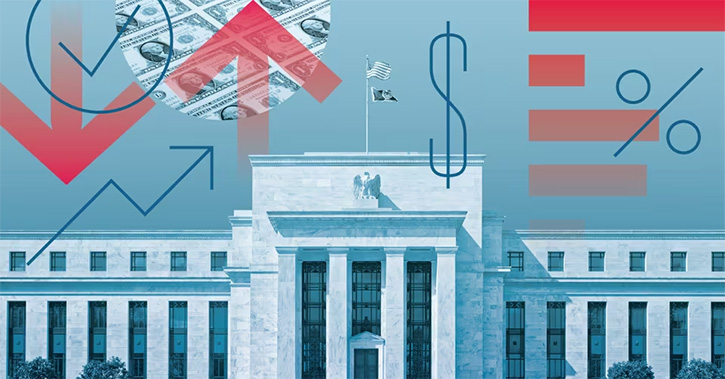
A rise in US-China trade tensions highlights the enduring role of trade in the Chinese economy. While the situation is fluid, a collapse of trade anywhere near the magnitude of the post-2008 financial crisis decline would be unmanageable for the Chinese economy, in the view of Morningstar analysts. This time around, with the debt/GDP ratio at 261%, a compensatory investment boom is out of the question.
Despite official real GDP growth unwavering at 6.8%, we believe growth more than likely slowed further in the first quarter, continuing a trend that began in the second half of 2017. Our broad index of real activity grew just 5.7% year over year in the first quarter, having recently peaked at 7.3% year on year in the third quarter of 2017.
As throughout 2017, inflation has continued to lend a hand in boosting nominal growth, with the initial increase in producer prices now leading to higher consumer prices. Consumer services inflation of 2.9% outpaced goods inflation of 1.7% for the quarter, with healthcare services inflation standing out at 6%. However, services inflation has decelerated in recent months.
With its internal rebalancing from investment to consumption proceeding on schedule, we believe China needs a stable contribution from its export sector now as much as ever. Indeed, exports returned to their historical role as a solid growth driver in 2017. The domestic demand share of key consumer goods production has generally fallen since 2015. Even mobile phones, which had rocketed upward in domestic demand through 2016, pivoted slightly to export markets in 2017. The enduring role of exports casts an ominous light, given the looming prospect of trade conflict with the United States.
The US still accounts for the lion's share of China's trade surplus. We examine a trade war scenario in which exports and imports with the US fall 50%. This causes a 1% drag on China's real GDP growth. Investment, which we already forecast to be weak owing to needed deleveraging and rebalancing to consumption, would probably contract in such a scenario, due to knock-on effects in the manufacturing sector. Therefore, even – generously – assuming that consumer demand remains resilient, a trade war could plausibly lead to GDP growth dipping into the low single digits.
Overcoming China's overinvestment and overborrowing problems is a daunting task. However, we believe some progress is already evident, although at the very early stages. For example, the central government is serious about its crackdown on debt, with Xinjiang the latest province that has halted all government-funded investment projects pending a review of their sustainability.
Retail sales growth remained robust at 9.8% for the first quarter, according to China's National Bureau of Statistics. While strong growth makes some sense, given the Lunar New Year timing – 19 days later than in 2017 – other data points paint a much weaker picture of consumption growth. The NBS's own household survey indicates that consumption expenditure growth has decelerated noticeably from a year ago, despite still-strong income growth, particularly after excluding housing costs, which have been lifted by higher real estate prices.
Volume growth for consumer goods has dropped off across the board, confirming a view of decelerated growth. We do think Chinese consumers can continue to facilitate a gradual rebalancing from investment to consumption. But under no circumstances is the Chinese consumer prepared to offset a potent double dose of slowing investment and swiftly falling net exports, which would likely prove toxic to the Chinese economy.




























